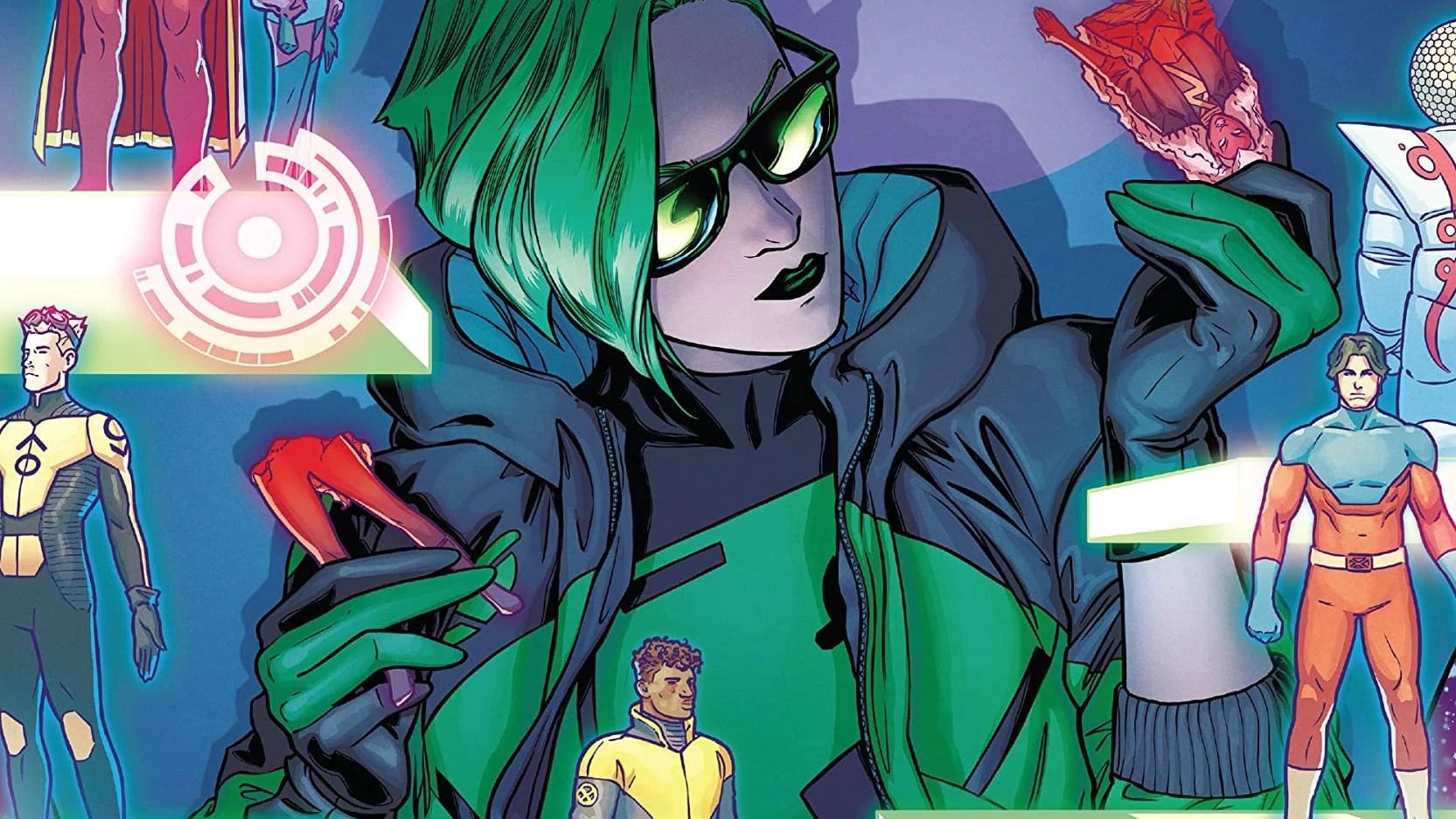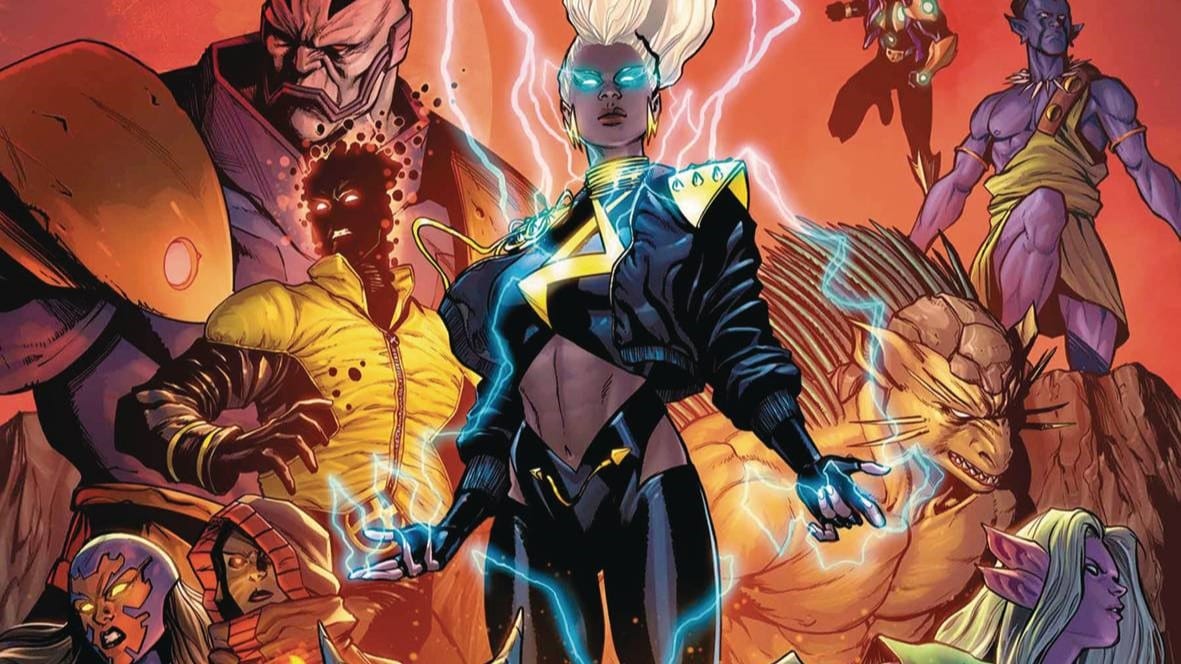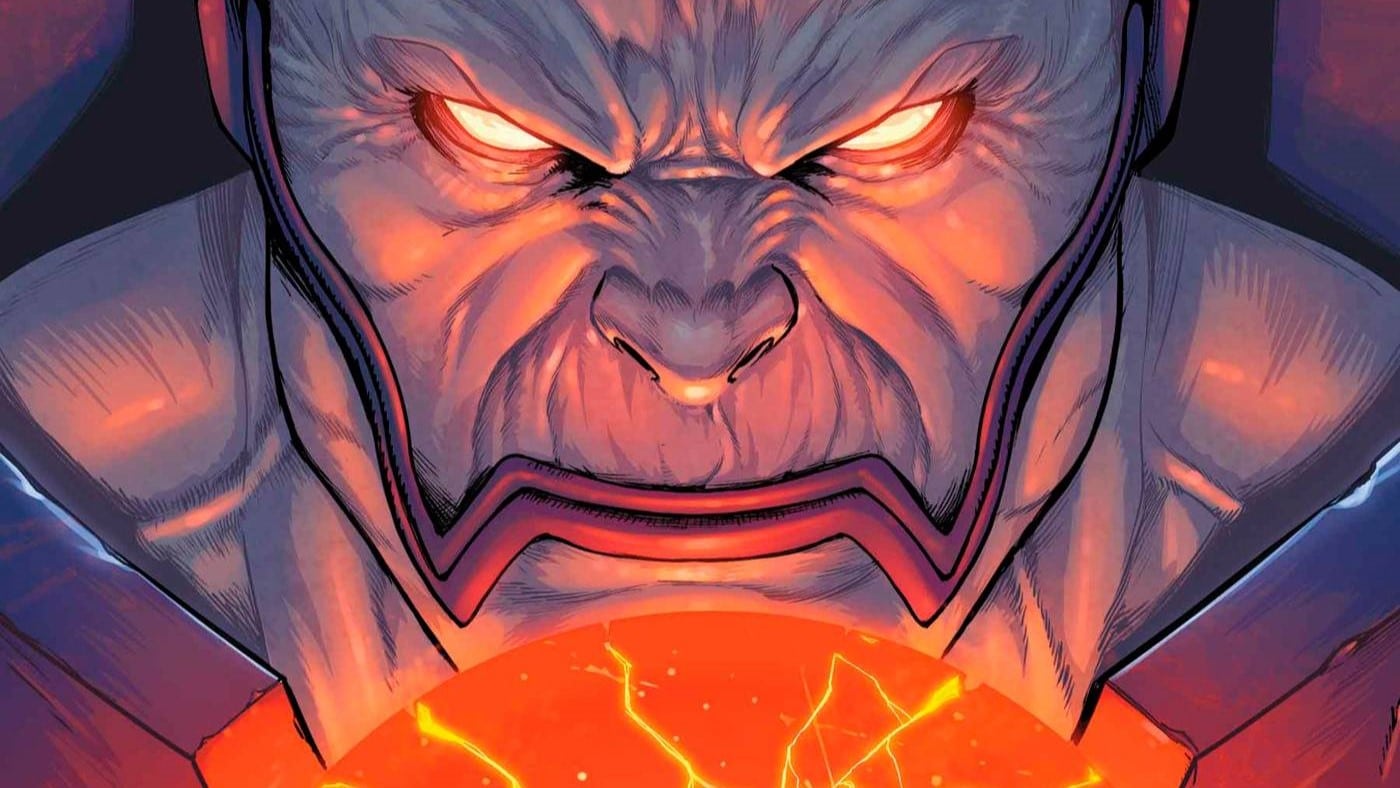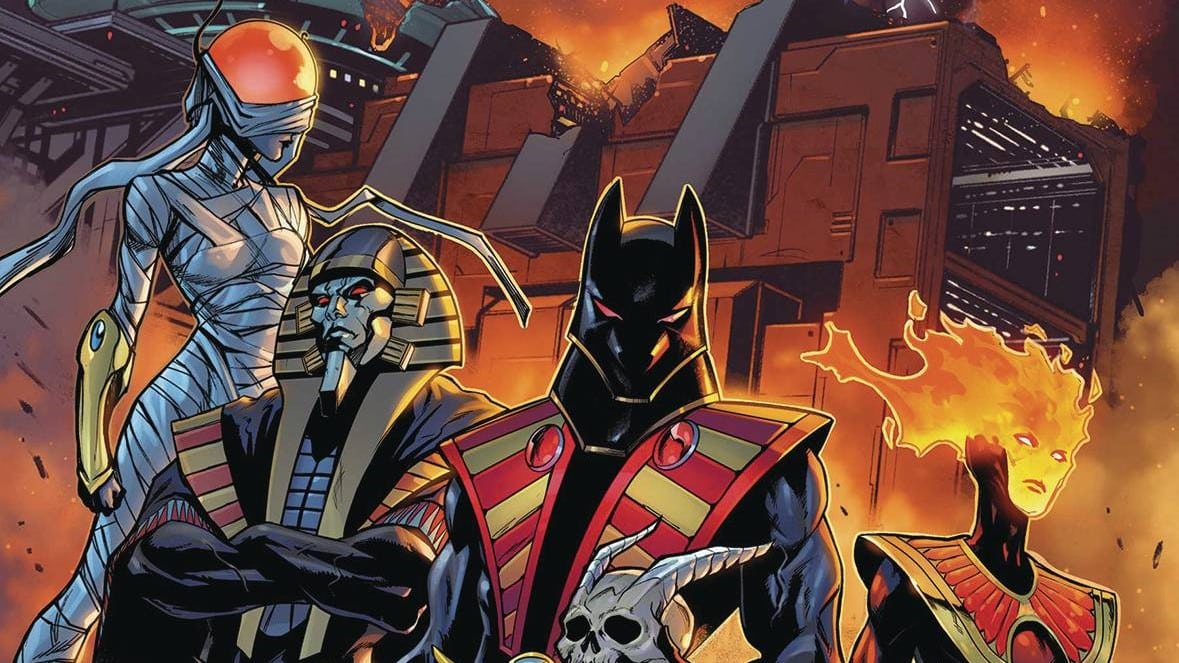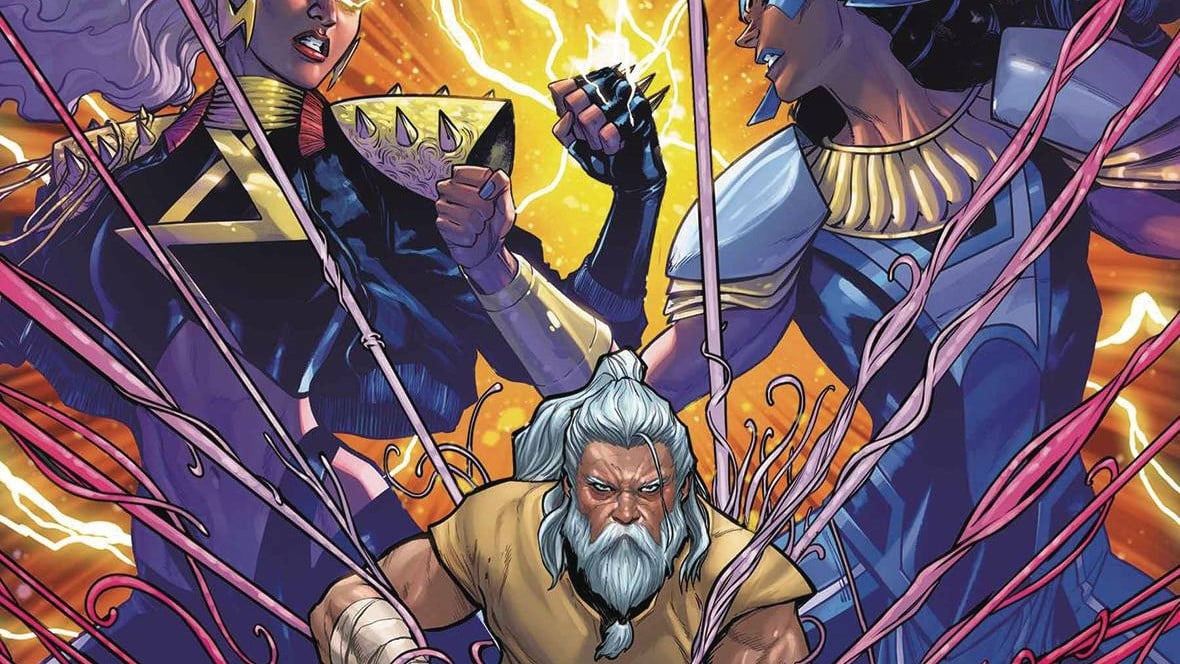Everything dies. Everything ends.
This is not a bad thing.
The problem isn’t ending; the problem lies in not planning for the eventuality of the inevitable.
Nothing defines great art more than its ending. A last line, a final note – that defines all that came before it.
Think of a television show that meanders on years after it should’ve stopped, or an album filled to the brim with filler.
Endings are good things. Necessary things. Blessings.
X-Men Red is not ending. We know it’s title and theme will soon convert to a Sins of Sinister branded “Storm and the Brotherhood”, taking place 10, 100, and 1000 years (sounds familiar?) after Sinister does, well, Sinister stuff (catch up on the Immortal X-Men – for your own good).
We also know Ewing has plans for the characters in 2023, including the return of Genesis and Apocalypse(!). So while there is certainly much more story that will yet be told, the major strands of this part of the story – the rise, fall, and renewing resurrection of Arakko and Brand’s grand plans of betrayal – seem to be coming to a crescendo.
X-Men Red #9, then, feels like the beginning of a song’s last verse. The notes are familiar, but are played to their most emotional epoch. We can feel the end in the air; there is a tension over how this emotion will resolve.
Let’s look at how everything is setting up to come crashing down.
Of Planners and Pawns

X-Men Red features three Omega level mutants. Their exploits are legendary; their prowess as fighters and leaders is unparalleled, unrivaled, and unquestioned.
And yet, these characters, these titans of power, have mostly just been pawns, moved and manipulated by beings with far less physical strength. Gabriel Summers (Vulcan) has been browbeaten at the behest of Brand for this entire run: every movement, every fight, every reaction and redirection has come at her (implicit and explicit) command. As proud a man as Magneto was, both the Fisher King and Bobby (Sunspot) encouraged his behavior – at the behest of the greater good, yes, but still.
And of Storm, the great and the mighty Mother of Mars, the independent thinker and the oft questioned leader? While it’s true she shunned attempts at outright manipulation from Isca and Brand, her worldview – and thus actions – were always (rightly) in service of those less powerful than her. No, empathy and altruism don’t directly align with manipulation, but still: she’s reacted more than she’s planned action over the course of this series.
No, the characters of lesser power hold more weight here. Power sets determine outcomes only to the extent powerful thoughts dictate them.
Thus we see Brand reveling in the chaos her manipulation of Vulcan has wrought Since bringing him back from the fault (via the progenitors, under the control of her “partner” Orbis Stellaris). All of Vulcan’s unhinged acts of power here – sciphoning off the Nova Force from Nova, sucking the confidence from Gladiator’s mind, pushing and prodding all to bow to his homogeneity – all masterminded by Brand, all acts she takes joy in. That’s said, there are hints that this joy is, much like her over confidence, a facade. The ominous line “someone’s got to care enough to be the bad guy” could be read as supervillainous rationalizing, and very well maybe; it could also, given the constantly shifting norms and expectations of Red, could actually be heroic. It’s a testament to this work that we never really know how to read a character, even in the midst of action.
Action that is subverted – yet again – by the appearance of Bobby. Sunspot has been kind of a deus ex machina I’ve the run of the comic: helping to influence the brotherhood, serving as a member of the Night Seats, and, here, anticipating Brand’s scheming (independent from Cable it seems) and creating a counter plan that’s pulled off effortlessly, a bodaciously brash yang to the yin of Brand’s meticulousness.
There’s an argument to make that he’s been a little too perfect during this run: that his presence has allowed the plot to move forward a little too easily and conveniently. And, were it not for how well written the character is (the data page is *chef’s kiss* perfect), his bro-ness (as much a cover for his care as Brand’s arrogance is for hers) would sully the series.
It’s has not.
It does not.
Thus Bobby emerging out of flames meant to kill Empress Xandra is just another feather in a hat full of last minute saves.
The scheming doesn’t stop at Arakko: Cable’s group of Brand haters (boy does she have haters) have traveled to the World Farm, seeking to find the source of his stolen techno organic virus. I argued there was too much exposition in the last episode; here, there is nothing but action. We see the team battling Orbis, who’s taken the body of a Progenitor and unleashed their powers on them. While all of this is cool and good, it highlights a problem I’ve been having with the work: I’ve spent time googling Progenitors, and, uh, I kinda know them now, I guess? There’s a lot of subtext that will go right over the heads of readers who aren’t caught up with, say, Annihilation or War of Kings – Subtext that gives meaning to the actions of Vulcan. This isn’t new in comics, which often refer to relationships and battles decades old. But here, the context feels more pivotal, and it’s a bit frustrating (though fulfilling since the works are good) that I have to do so much digging to really, REALLY get what’s going on.
And there is a lot going on.
Surprise, Surprise

The work ends with what’s become a signature for the series: a full page illustration of a character’s surprise, pivotal arrival. Here, we see Storm, laying in wait at the metallic Autumn Palace, as Vulcan seeks out Xandra. The implication is that we’ll see a sequel to their first fight, where Storm’s mastery of her might subdued Gabriel quickly. We know resurrected mutants come back stronger; we know he’s learned from his loss; we’ve just seen him snatch power from two cosmically enriched warriors.
Therefore, it would not at all surprise me to see Storm…lay Vulcan out on a couch and perform a therapy session on him.
Maybe Gabriel’s arc – with the progenitors manipulating his mind from the vault under the supervision or orbis, and the behest of brand – wasn’t in the original cards for the character. And while that ultimately doesn’t matter (we don’t need anymore laments over the Hickman arc that never was), what does matter, and what bothers me here, is how Vulcan’s mental instability is used and weaponized, but never really explored or supported.
Everyone’s reaction to his pain is acquiescence or manipulation – not support, empathy, or help. It’s unfair to a character struggling with himself, and as the world talks more about helping those with mental issues, it would be nice to see that empathy extended to a character. Is that maybe asking too much? Probably! Does this ruin the work? Not at all. Art need not imitate my perspective on life all the time for it to be valid or good. But if a good hug, cry, and some Krakoan psych meds don’t manifest in Red 10, I hope for the character’s sake that it happens eventually.
X-Men Red is good, so good, because it subverts expectations time and time again. The hour of Magneto was less a rampage and more a eulogy; the Night Seats were not of super powerful beings, but of those with low to no power; Thunderbird’s raucous introduction was merely a distraction.
You never know what’s coming next, yet you know you want to find out.
Some of the best songs simply fade out, the infinite implied in their looping, quieting refrain. Others end suddenly, triumphantly, celebration reverberating ad infinitum.
How will the end of this iteration of X-Men Red play out? My ears are open, in eager anticipation.
X-Traneous Thoughts
- Orbis is a geneticist who likes doing amoral experiments with genes. Hmm. Sounds familiar. I’m pretty sure we have to call a spade a spade. Or, rather, a diamond a spade. (Ok, fine, for those who don’t get the brilliance of that last line: in Immortal X-Men #8, we see that Sinister has four(!) versions of himself running around the universe, each branded with his signature playing card sign embossed on their foreheads: Sinister has the red diamond; Dr Stasis, the Orchis-leading X-Men villain, has the Black club. Meaning there’s a black spade and a red heart running around – and I’m willing to bed Orbis is the spade.)
- Charles’ data page is a pitch perfect example of his deluded arrogance. He contradicts himself in sentence after sentence, believing in his own ability to make things right over the supreme likelihood he would get things wrong. This, beyond being a brilliant encapsulation of his characterization, specifically spells out what Magneto was scared of as died. Charles Xavier will stop at nothing to show the world how good he is. God help us all.
- Art shouldn’t be a side note. The work and detail it takes to compose these masterpieces deserves constant praise. It’s just that i find the narrative structure of the work so endlessly appealing, that I don’t have the right words to talk thoroughly about its presentation. Caselli is doing excellent work here, using intricate details in facial expression to really bring home the emotions of the moment. Do I love the fight scenes? No, I merely like them a lot, as I’ve been ruined by Pepe Larraz. But the nature of this book – thoughtful, plodding, suspenseful – matches the grit and detail of Caselli (see: Gladiator’s face shriveling like a raisin), and I have no need to imagine anyone else doing the work.
A proud New Orleanian living in the District of Columbia, Jude Jones is a professional thinker, amateur photographer, burgeoning runner and lover of Black culture, love and life. Magneto and Cyclops (and Killmonger) were right. Learn more about Jude at SaintJudeJones.com.

